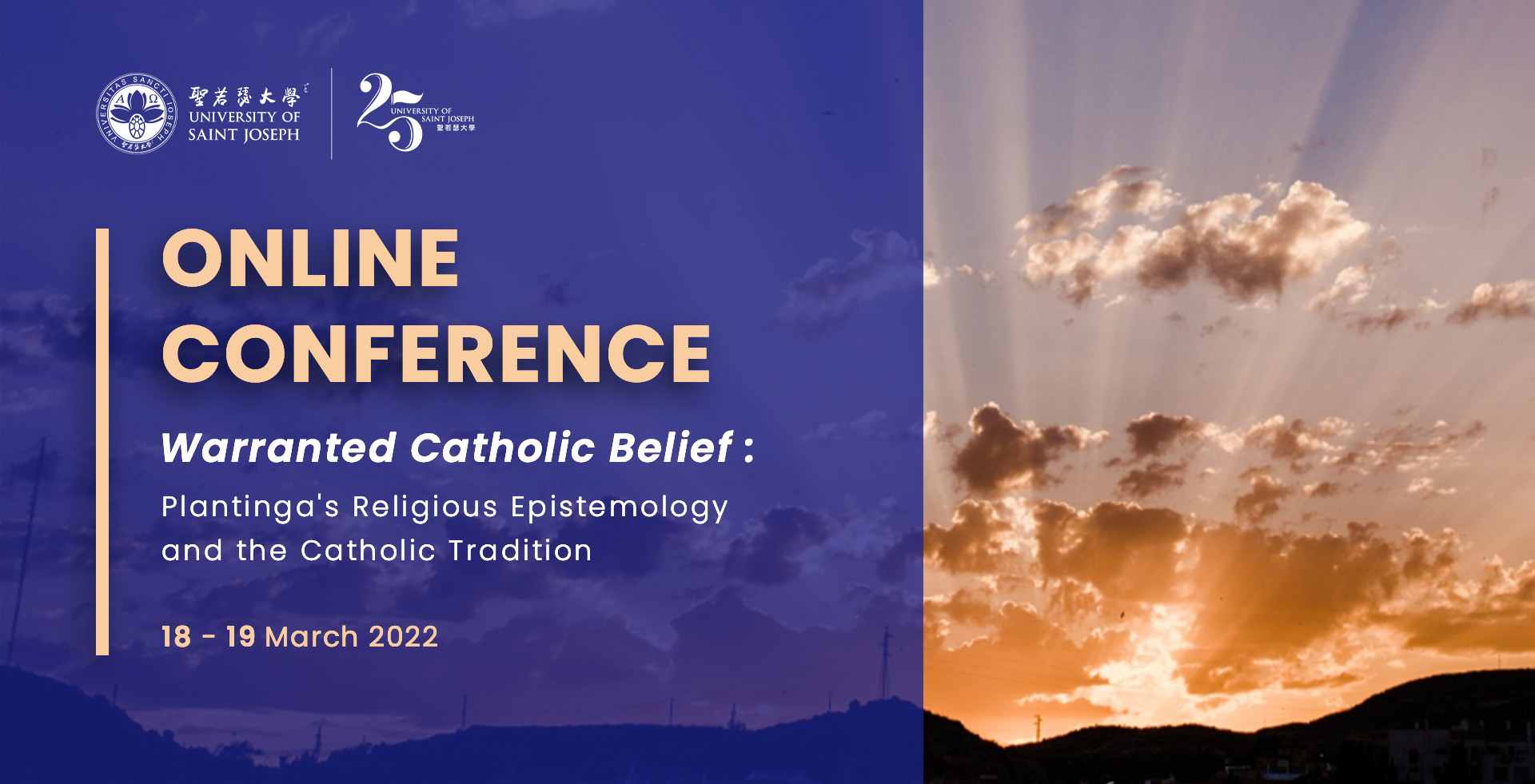Online Conference | Warranted Catholic Belief: Plantinga’s Religious Epistemology and the Catholic Tradition

Online Conference | Warranted Catholic Belief: Plantinga’s Religious Epistemology and the Catholic Tradition
18
Mar
Alvin Plantinga and his fellow Reformed Epistemologists’ claim that Christian belief can be “properly basic” has transformed analytic assessments of how the Christian faith can possess positive epistemic status. However, explicit reactions to “Reformed Epistemology” from a Catholic perspective – which mainly date from the early 1990’s – vary from hostile incredulity to the mixture of appreciation and considered critique typified by the best-known Catholic response to Plantinga (Linda Zagzebski ed. Rational Faith: A Catholic Response to Reformed Epistemology (1993)).
But in the thirty years since Rational Faith was published, philosophical evaluations of Reformed Epistemology and its relationship to traditional Christian accounts of faith and reason have developed considerably. Epistemologists have offered a variety of fresh critiques, defences, and adaptions of Plantinga’s account of warranted faith. Additionally, detailed historical research has compared Plantinga’s epistemology to the work of many historical theologians and philosophers, including Catholic thinkers such as Augustine, Aquinas, Scotus, Newman, Balthasar, Maritain, and MacIntyre.
The Warranted Catholic Belief conference (online, 18th – 19th March 2022) will begin a long-overdue reconsideration of the relationship between Reformed Epistemology and Catholic thought. We wish to highlight the influence of Reformed Epistemology as an apologetic project and its potential for adoption, adaption or critique from a Catholic perspective. A further goal is to stimulate historical conversation about the affinities – and differences – between Plantinga’s epistemology and historical or contemporary Catholic accounts of faith. Finally, we are keen to hear from non-Catholics about their views on the theological underpinnings of Reformed Epistemology.
SCHEDULE & DETAILS:
https://us06web.zoom.us/j/
Meeting ID: 891 3552 2984
Passcode: 092617
Day 1 : How should Catholics evaluate Reformed Epistemology?
18/03/22
Session 1: Reformed Epistemology and Religious Experience
11 am to 12 pm (BST)*
- Wes Skolits (University of Oxford)
‘Perceiving God in the Catholic Tradition: Plantinga, Gardeil, and the Challenge From Divine Simplicity’ - Dr. Walter Scott Stepanenko (John Carroll University)
‘A Catholic Solution to the Alleged Problem of the Impossibility of Religious Experience’
Lunch Break 12 pm to 1 pm (BST)*
Session 2: Is Reformed Epistemology too Reformed?
1 pm to 2:30 pm (BST)*
- Edmond Eh (University of Saint Joseph, Macao)
‘Aquinas, Calvin and Plantinga: Where the Conflict Really Lies’ - Dr Stanisław Ruczaj (Jagiellonian University)
‘The Holy Spirit in Plantinga’s account of coming to faith: a critique, Catholic and Reformed’ - Paul Flynn (Independent Scholar)
‘Faith and Faculties in Alvin Plantinga and St John of the Cross, A Defence of the Original Model for Warrant Applied to Christian Belief.’
Coffee break 230 pm to 2:45 (BST)*
Session 3: The Epistemological Foundations of Reformed Epistemology
2:45 pm to 3:45 pm (BST)*
- Eyob Zewdie (University of California, Irvine)
‘Quasi-Fideism and Reformed Epistemology’ - Jonathan Fuqua (Conception Seminary, Missouri)
‘Catholicism and Proper Functionalism’
15 mins Coffee Break
Open Discussion – How successful is Reformed Epistemology; either in light of natural reason, or given.
Day 2: How can Catholics use Reformed Epistemology?
19/03/22
Session 1: Catholic Adaptions of Reformed Epistemology
11 am to 12 pm (BST)*
- Dax R. Bennington (University of Arkansas(?))
‘A Catholic Christian Extended A/C Model’ - Domingos Faria (University of Lisbon)
‘Knowledge First Reformed Epistemology’
Lunch Break 12 pm to 1 pm (BST)*
Session 2: Reformed Epistemology and the Body of Christ
1 pm to 2:30 pm (BST)*
- Ben Koons (Yale)
‘What gives the man in the pews warrant? A Catholic Model of Group Warrant and its Rivals’. - Thomas Yates (University of Auckland)
‘Virtuous Epistemological Inquiries: A Responsibilist Response to Plantinga and Zagzebski’ - Erik Baldwin (Indiana University)
(Temporary Title) ‘McIntyre and Reformed Epistemology’
2:30 to 2:45 (BST)* Coffee break
Session 3: Reformed Epistemology and Catholic Evangelisation
2:45 to 3:45 pm (BST)*
- Samuel Jonathan (University of Indonesia)
‘Reformed Epistemology and Lonergan’s Conception of Conversion.’ - Tyler McNabb (University of Saint Joseph, Macao) and Gregory Stacey (University of Bristol)
‘Sola Scriptura and the Evolutionary Argument Against Naturalism’
15 mins Coffee Break
Open Discussion – How should Catholics appropriate Reformed Epistemology? Can it be a tool of the New Evangelisation?










